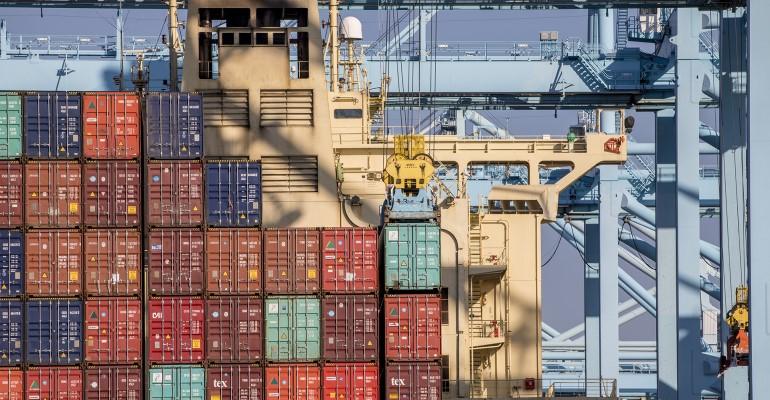In the on and off negotiations between the labour and shipping lines/ terminals, which have been underway for a year, job actions have been sporadic, with the latest major slowdown nearly two months ago.
Reports also indicated that container throughput at the Port of Oakland had been slowed down. The cargo has continued to flow but the terminals and carriers in the Pacific Maritime Association, or PMA, with operations at 28 ports, have been reminded of the importance of the International Longshore Workers Union (ILWU, representing 22,000 workers). A local news outlet, the Los Angeles Times, described the latest action by the union as: “the boldest so far to sway contract negotiations”.
After the “supply chain crunch” over the past two years, the public at large has been keenly aware of happenings on the docks. Both sides have been using social media has been a channel for getting the word out. On Twitter, the ILWU issued a statement that took aim at the PMA, saying, in part: “PMA member carriers and terminal operators made historic profits of $510 billion during the pandemic. In some cases, profits jumped nearly 1,000%. Even as shipping volumes return to normal in 2023, PMA members have continued to post revenues that far exceed pre-pandemic times by billions of dollars.”
The statement went on to note the important contributions of the workers to supporting economic vitality during the pandemic years, with some longshoreman succumbing to Covid-19, and then went on note: “Despite this fact, from pre-pandemic levels through 2022, the percentage of ILWU wages and benefits continued to drop compared to PMA rising revenues. The ILWU is committed to bargaining a contract that is fair and equitable, including wages and benefits that reflect the dedication of the ILWU workforce and its contributions to the shipping industry’s success.”
Their post continued on: “Any reports that negotiations have broken down are false,” stated International President Willie Adams, “We are getting there but it’s important to understand that West Coast dockworkers kept the economy going during the pandemic and lost their lives doing so. We aren’t going to settle for an economic package that doesn’t recognize the heroic efforts and personal sacrifices of the ILWU workforce that lifted the shipping industry to record profits.”
Firing back on Twitter, the PMA tweeted: “Today, the ILWU is staging concerted and disruptive work actions that have effectively shut down operations at some marine terminals at the Ports of Los Angeles and Long Beach….The Union is also staging similar work actions that have shut down or severely impacted terminal operations at the Ports of Oakland, Tacoma, Seattle, and Hueneme.”
The individual ports, watching the negotiations from the quayside, don’t have a lot to say; in a statement, Port of Long Beach’s Executive Director, Mario Cordero, previously Chairman at the Federal Maritime Commission, or FMC, said “As we continue to monitor terminal activity, we urge the PMA and ILWU to continue negotiating in good faith toward a fair agreement.”
Speaking two months ago after an April slowdown Cordero’s counterpart across San Pedro Bay at the Port of Los Angeles. Gene Seroka, had said: “This situation captured the nation's attention, and rightly so. It's a reminder that a negotiated labor agreement is crucial in our efforts to regain shipper confidence and bring the cargo back to LA. Although we don't have a seat at the bargaining table, we're closely monitoring the situation on a daily basis … Simply put, there's no bigger priority right now than this contract agreement.”
Copyright © 2024. All rights reserved. Seatrade, a trading name of Informa Markets (UK) Limited.
Add Seatrade Maritime News to your Google News feed.  |

